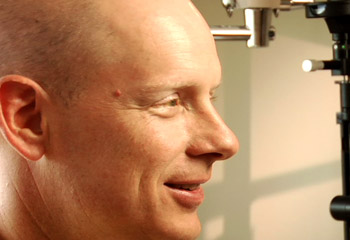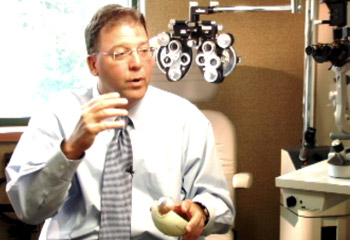Miracle of Sight
The successes in treating disease and injury with adult stem cells are growing rapidly, while the failures of embryonic stem cells in medical research and treatment are adding up. In this episode we’ll meet Dr. Edward Holland, whose use of adult stem cells in cornea transplants has restored sight for patients who would not have had hope a few years earlier. We’ll learn about the difficult journey of Jeff Long whose severe vision problems went undiagnosed and unsuccessfully treated for decades before his physician referred him to Dr. Holland.
Dr. Edward Holland is Director of Cornea Services at the Cincinnati Eye Institute and Professor of Ophthalmology at the University of Cincinnati. He treats patients from all over the world with an innovative procedure that uses adult stem cells to gain great success in cornea transplants. Before introducing adult stem cells, many cornea transplants failed in a short time, plunging patients back into near or total blindness. Dr. Holland explains how the adult stem cells are obtained and used to help the body accept a new cornea.
Dr. Holland’s patient Jeff Long spent decades trying many treatments while his vision became so bad he was unable to drive, read or function fully as a teacher, dad and husband. When his daughters began to have vision problems, his doctor suspected a genetic eye condition. He sent Jeff to Dr. Holland where he was diagnosed with aniridia and underwent cornea transplants using adult stem cells to restore the structure around the cornea destroyed by disease. Jeff’s wife, Linda, shares how the family has coped with both Jeff’s disease and helping their daughters who also have the condition at early stages. Their journey has not been easy, but they are thankful for the research and team who have brought back Jeff’s vision.
Embryonic stem cells, which can only be derived through the destruction of human life, are the focus of much debate. Dr. David Prentice of the Family Research Council will explain how adult stem cells, obtained without taking a life, are being used successfully to treat many conditions from heart disease to Parkinson’s. With this knowledge, scientists can focus on new discoveries with adult stem cells that hold the promise of healing.






